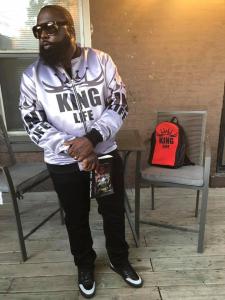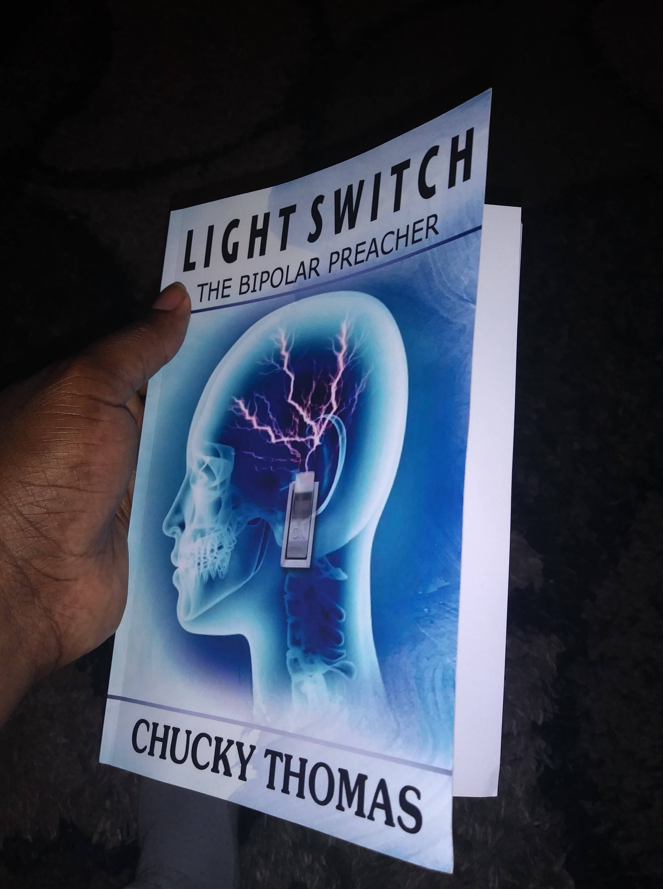Chicago Mental Health Advocate Warns of Street-Level Barriers to Inmate Recovery and Community Reform
Veteran activist says efforts to mentor incarcerated individuals and pursue public service were hindered by gang-aligned power structures.
CHICAGO, IL, UNITED STATES, August 8, 2025 /EINPresswire.com/ -- In a city grappling with the dual challenges of incarceration and mental health disparities, a local veteran has come forward to highlight a rarely discussed obstacle: the role of gang influence in suppressing grassroots reform.
Chucky Thomas, founder of the Thomas Consortium in Chicago, reports that his attempts to establish inmate-focused recovery programs and engage in political service were disrupted by interference from gang-affiliated individuals. Thomas, who leads faith-based and holistic outreach initiatives, says this form of community pressure can effectively silence emerging leaders and block recovery opportunities for the incarcerated.
“This isn’t about politics or fame, it’s about what happens when someone tries to change things at the street level and runs into invisible walls,” Thomas stated.
While Thomas’s claims are based on personal experience, his observations reflect wider concerns raised by researchers and community organizers: that unofficial power structures in underserved neighborhoods can actively obstruct mental health advocacy, reentry support, and civic engagement.
Thomas specifically alleges that his reform work and leadership efforts were obstructed by individuals associated with Larry Hoover, the Gangster Disciples, the James Jones Gang, and members of the Masonic order. He claims that these entities, in varying degrees, posed ideological and practical challenges to his mission of empowering educated minorities and fostering inmate rehabilitation.
Community-based recovery models, particularly those grounded in nontraditional approaches such as spirituality, mentorship, and holistic healing, often rely on direct engagement with vulnerable populations. But in cities where gang influence remains embedded in daily life, that access can be controlled or restricted.
Thomas alleges that his outreach to Illinois inmates, which emphasized personal discipline, spiritual growth, and reintegration tools, was met with resistance from individuals with vested interests in maintaining control over incarcerated and formerly incarcerated individuals.
The alleged interference escalated, Thomas said, as he prepared to explore a campaign for public office, an effort that, he believes, would have amplified his message of healing and accountability.
Experts in urban sociology have long documented the difficulties faced by community leaders working independently of government institutions. “There is a persistent tension between grassroots reformers and informal community power brokers,” says Dr. Lawrence Vega, a criminologist at a Midwestern university. “When the goals of reform threaten that balance of influence, even nonviolent actors can become targets.”
Thomas does not name specific individuals or groups in his claims, citing concerns for personal safety and ongoing outreach work. However, he underscores the need for public awareness around what he calls “non-systemic suppression,” cases in which local actors prevent alternative voices from gaining ground in civic life.
His Chicago-based initiative, Thomas Consortium, continues to focus on recovery education, faith-rooted personal development, and support for individuals transitioning from incarceration. Though barriers remain, Thomas believes public discourse must begin to address the intersection of mental health reform, reentry support, and community-level resistance.
“If we want real change, we can’t just talk about systems, we have to look at the streets, the local dynamics, and ask why some people get blocked from helping others,” he said.
Mental health advocates in urban communities often cite challenges beyond funding and policy. In areas heavily affected by gang presence, any initiative that shifts attention or influence can be perceived as disruptive, even when rooted in healing. As Thomas points out, this leads to a situation where “those most equipped to help are the first to be pushed out.”
Community stakeholders, policy analysts, and city officials are being urged to explore solutions that not only reform the criminal justice system but also protect the voices of those attempting to build reform from within the community.
Thomas concludes, “I’m one of many. If these walls are stopping me, they’re stopping others too, and that should matter to everyone.”
About Chucky Thomas
Chucky Thomas is a Chicago-based mental health advocate, veteran, and founder of the Thomas Consortium. Through his platform www.bipolarpreacher.com, he promotes faith-based and holistic approaches to mental health recovery, with a focus on empowering underserved communities and supporting inmate rehabilitation. Thomas has been featured on radio programs, including WVON 1690, where he has discussed mental health awareness, recovery journeys, and community reform initiatives.
Chucky Thomas
Thomas Consortium
+1 708-462-2674
email us here
Visit us on social media:
Instagram
Facebook
TikTok
X
Legal Disclaimer:
EIN Presswire provides this news content "as is" without warranty of any kind. We do not accept any responsibility or liability for the accuracy, content, images, videos, licenses, completeness, legality, or reliability of the information contained in this article. If you have any complaints or copyright issues related to this article, kindly contact the author above.





